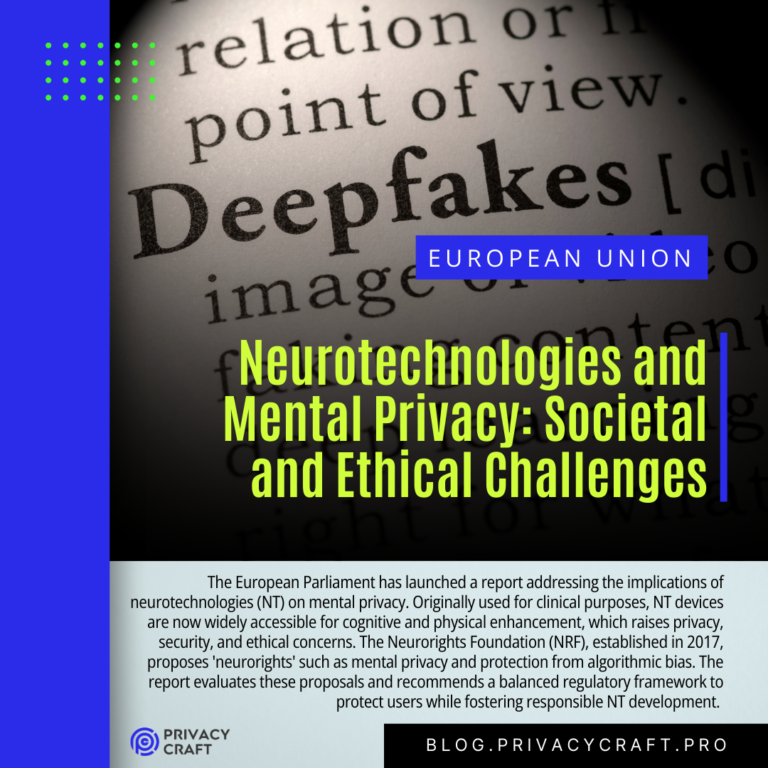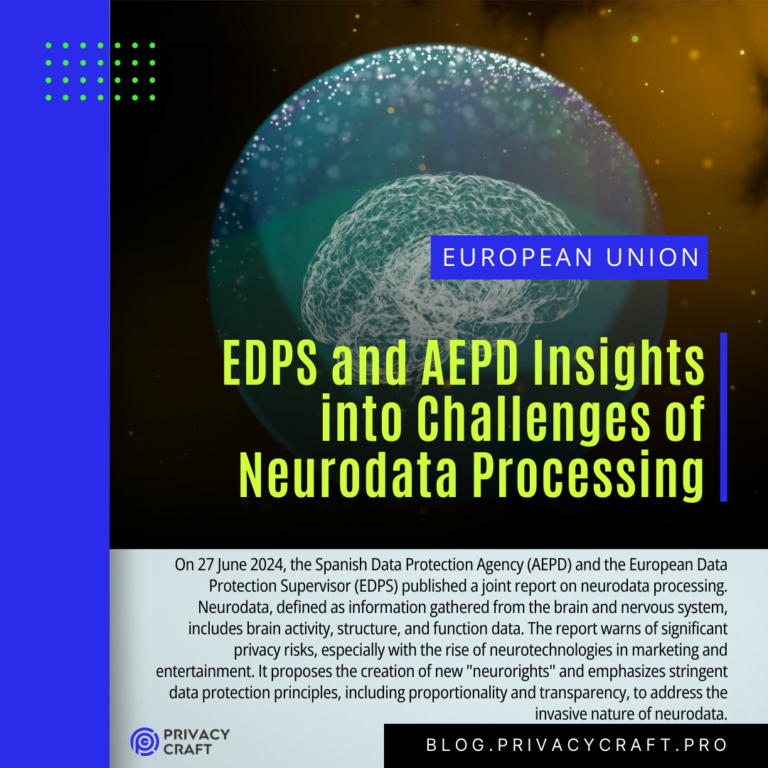Neurotechnologies and Mental Privacy: Societal and Ethical Challenges
The European Parliament has launched a report addressing the implications of neurotechnologies (NT) on mental privacy. Originally used for clinical purposes, NT devices are now widely accessible for cognitive and physical enhancement, which raises privacy, security, and ethical concerns. The Neurorights Foundation (NRF), established in 2017, proposes ‘neurorights’ such as mental privacy and protection from algorithmic bias. The report evaluates these proposals and recommends a balanced regulatory framework to protect users while fostering responsible NT development.
The study recommends six actions: investigating technology-centred risk evaluations, tracking public communication on NT, discontinuing neurorights as human/fundamental rights, funding research to fill existing gaps, supporting EU NT providers, and investigating the need for new NT device standards. This builds on a prior EDPS tech dispatch highlighting similar data protection needs.
Neurotechnologies and Mental Privacy: Societal and Ethical Challenges Read More »

